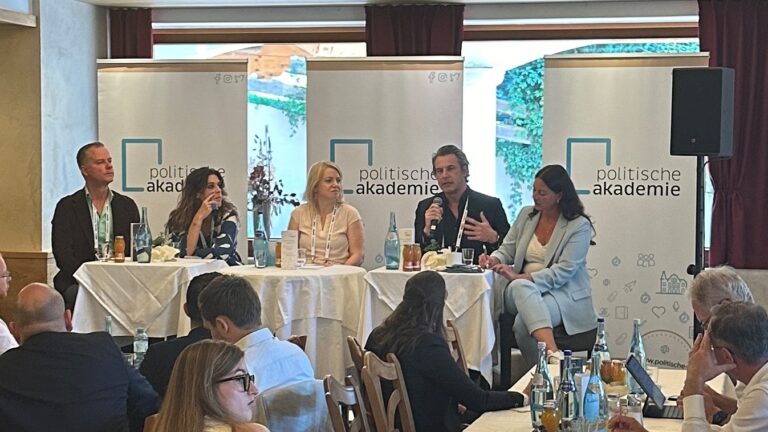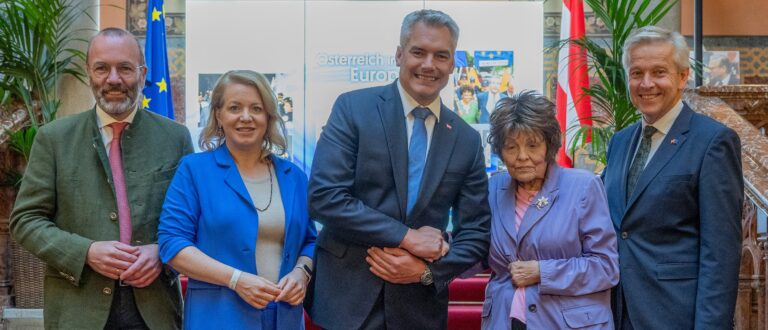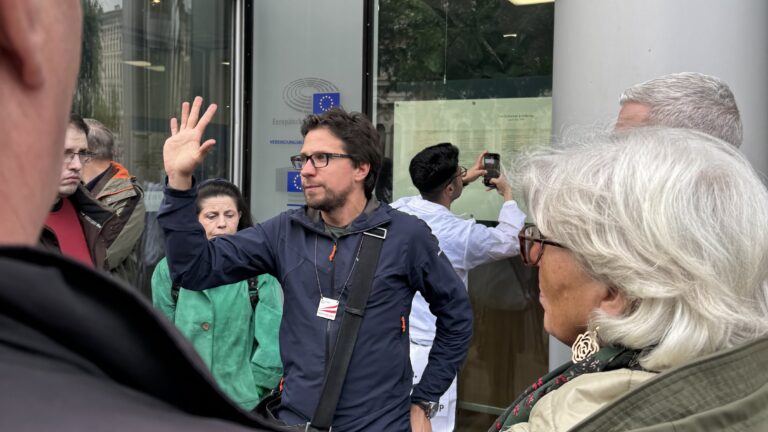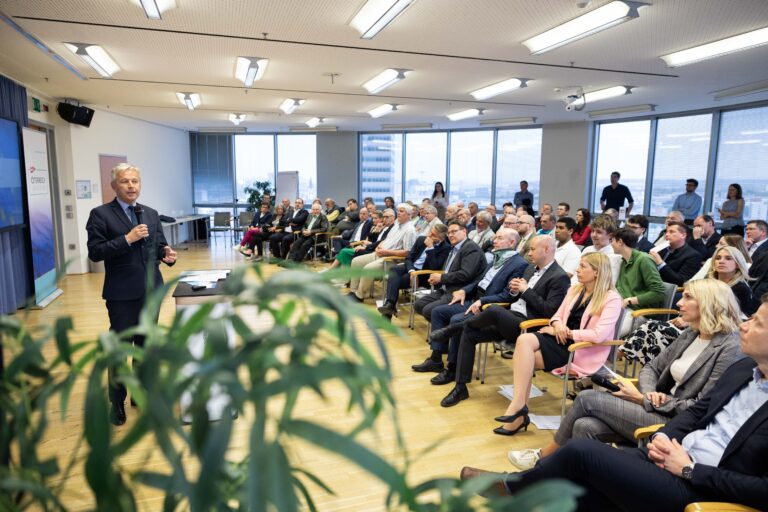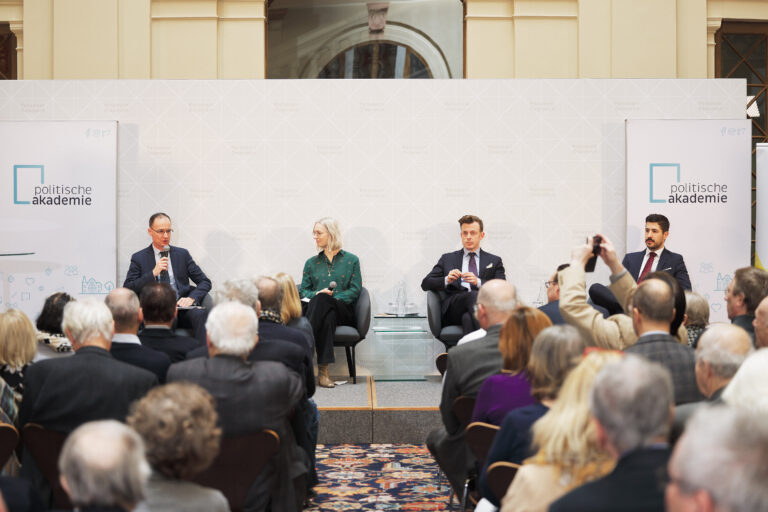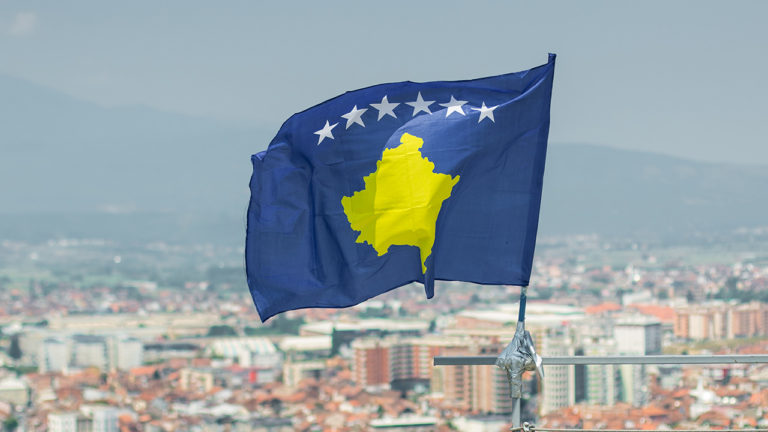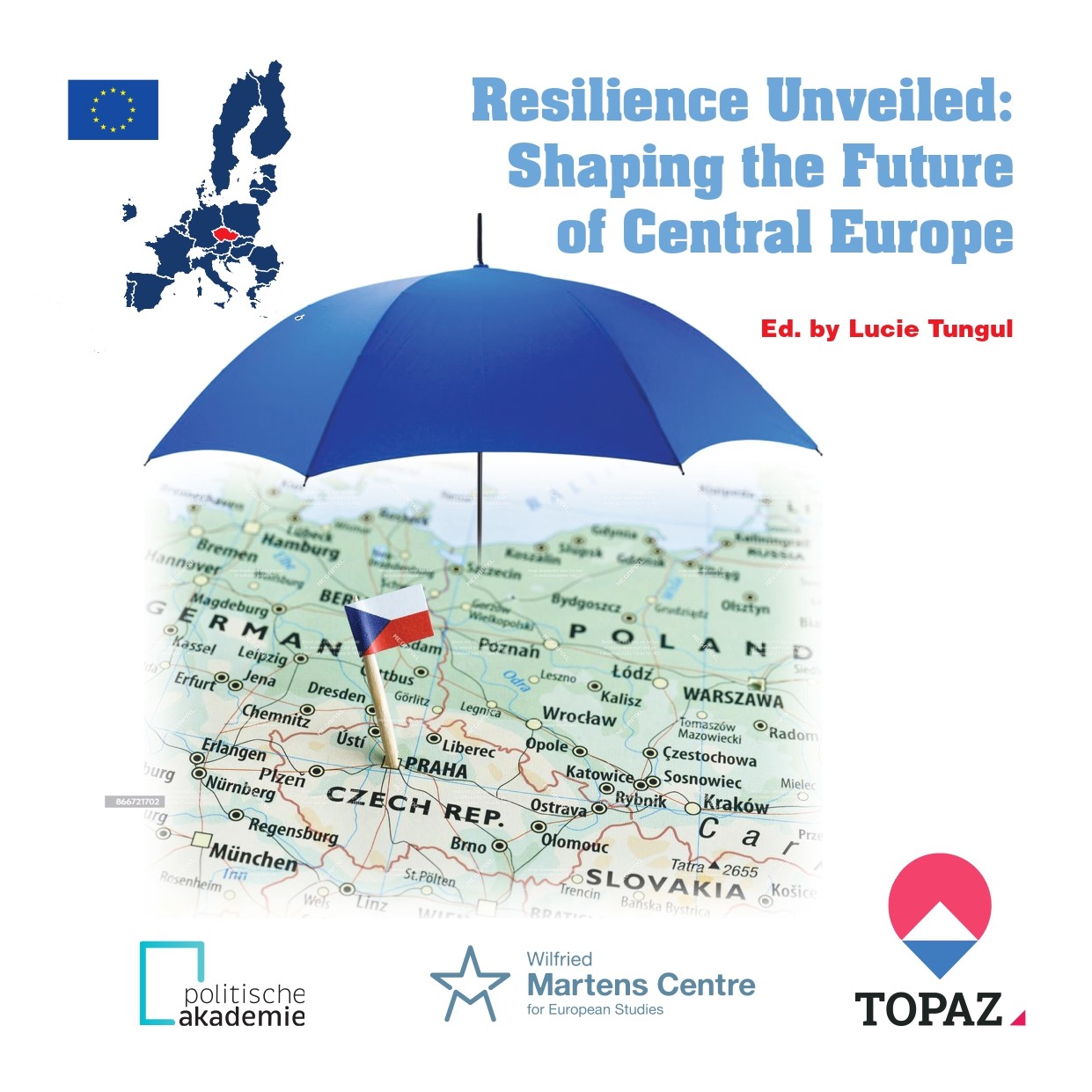
Togehter with the Wilfried Martens Centre for European Studies and TOPAZ form Czechia, we present our most recent publication Resilience Unveiled: Shaping the Future of Central Europe. The collection provides a deeper understanding of the current geopolitical and socio-economic landscape of Central and Eastern Europe. With Czechia at the centre, it looks at the complexities of within and outside the region. The key major challenge facing Europe today is Russia’s war in Ukraine. Creating complex geopolitical dynamics, the war highlights a delicate balance between regional security and broader European stability. Despite the proximity of the conflict, Central European countries have not always been able to find a common approach, mostly being affected by domestic political power constellations and individual historical experiences.
It also critically examines the dangers of backsliding in Central Europe, highlighting the challenges that certain countries within the region may face in maintaining democratic principles. The main threats include the erosion of democratic institutions, the rise of populist movements, and the impact of illiberal external influences, mostly Russia. Among the long-term threats are low pluralism, discrimination, and unequal representation.
Resilient and democratic societies serve as the foundation for the future of Europe, providing essential elements for enduring security. From internal stability and economic strength to social cohesion and international collaboration, we need to prepare for current and future security challenges in a rapidly changing global landscape. The publication offers its readers not only a deeper appreciation for the Central European region’s historical significance, but also an enriched perspective on how Central Europe contributes to solving some of Europe’s contemporary challenges.
